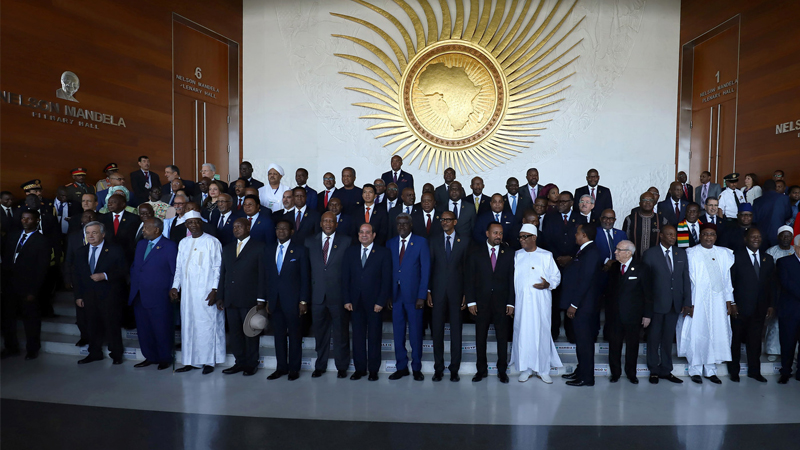The African Union announced on Monday it got parliamentary ratification of 27 member countries for the continental free trade zone, set to be a potential “economic game changer”.
Egyptian President Abdel Fattah al-Sisi, who currently chairs the AU, launched on Sunday the operational phase of the African Continental Free Trade Area (AfCFTA), which would unite 1.3 billion people, create a $3.4 trillion economic bloc. The launch was made during the AU’s summit in Niamey, Niger.
AfCFTA, the largest since the creation of the World Trade Organization in 1994, is expected to help unlock Africa’s long-stymied economic potential by boosting intra-regional trade, strengthening supply chains and spreading expertise.
Fifty-four of the continent’s 55 states have signed up, after Nigeria and Benin agreed to join the new bloc.
The free trade agreement was adopted and opened for signature on 21 March 2018 in Kigali. It later entered into force on 30 May 2019, thirty days after having received the twenty-second instrument of ratification on 29 April, 2019 in conformity with legal provisions.
AU Commission’s chair Moussa Faki Mahamat described the AfCFTA agreement as one of the instruments for continental integration in line with the objectives of the Abuja Treaty and the aspirations of Agenda 2063.
Africa has missed out on the economic booms that other trade blocs worldwide have experienced in recent decades. The continent’s intra-regional trade accounted for only 17 percent of exports in 2017 compared to 59 percent in Asia and 69 percent in Europe.
The new free trade deal aims at reducing imports, improving productive and manufacturing capacities and supporting infrastructure projects in Africa. It will work to generate employment opportunities for a rapidly growing youth workforce between member states. It could also enhance intra-African trade by 52.3 percent annually, according to the United Nations Economic Commission for Africa (UNECA).
It is expected to favour small and medium-size businesses, which are responsible for more than 80 percent of Africa’s employment and 50 percent of its GDP.
However, economists referred that significant challenges remain, including poor road and rail links, large areas of unrest, excessive border bureaucracy and petty corruption, which have held back growth and integration.
Members have committed to remove tariffs on most goods, which will boost trade in the region by 15-25 percent in the medium term, but this would more than double if those challenges were dealt with, according to International Monetary Fund (IMF) estimates.
The IMF in a May report described the African free-trade zone as a potential “economic game changer” of the kind that has boosted growth in Europe and North America, but it added a note of caution.
“Reducing tariffs alone is not sufficient,” it said.
